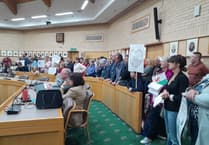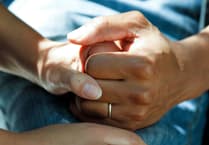Senedd members called for free sunscreen in schools and the removal of VAT amid concerns Wales has the highest rate of skin cancer in the UK.
Sioned Williams said skin cancer rates in Wales increased by eight per cent between 2016 and 2019, with more than 2,000 people each year – or six a day – dying across the UK.
She told the Senedd: “Out of the four UK nations, Wales has the highest rates of skin cancer and we now – all of us – have a one in five chance of developing it during our lives.“
Ms Williams said a report found 30 to 50 per cent of cancers occur due to exposure to avoidable risks, such as exposure to the sun or using sunbeds, as she called for a focus on prevention.
The shadow social justice secretary raised an “extremely revealing and important” study which urged schools in Wales to do more to protect children from exposure to the sun and found only 39 per cent of schools had a sun safety policy and not all enforced them
Ms Williams said only 29 per cent of schools teach sun safety as a part of the curriculum in every year group and only five per cent of schools had sufficient shade for most active outdoor pursuits.
“Education will go a long way towards reducing skin cancer rates,” she stressed.
Ms Williams warned the cost-of-living crisis has pushed up the prices of essentials, including sun protection, with some food banks starting to offer sunscreen.
She said the cost of sunscreen has increased by almost 30 per cent in the past two years, according to the Office for National Statistics, impacting on sales figures.
Ms Williams raised a warning from the British Association of Dermatologists that as prices rise, people may use sunscreen less – putting them at “great risk” of cancer.
She warned: “Most skin cancers are preventable but they can be deadly.”
Lynne Neagle, for the Welsh Government, said there were 15,000 recorded cases of non-melanoma skin cancer and 1,000 cases of melanoma in 2019.
The education secretary told the chamber the Welsh Government provides advice and guidance for all schools to help them keep pupils safe on extremely hot days.
But Ms Neagle said: “We also cannot forget that cancer prevention is an issue for the whole of society, not something that we can place entirely on the shoulders of schools.”





Comments
This article has no comments yet. Be the first to leave a comment.